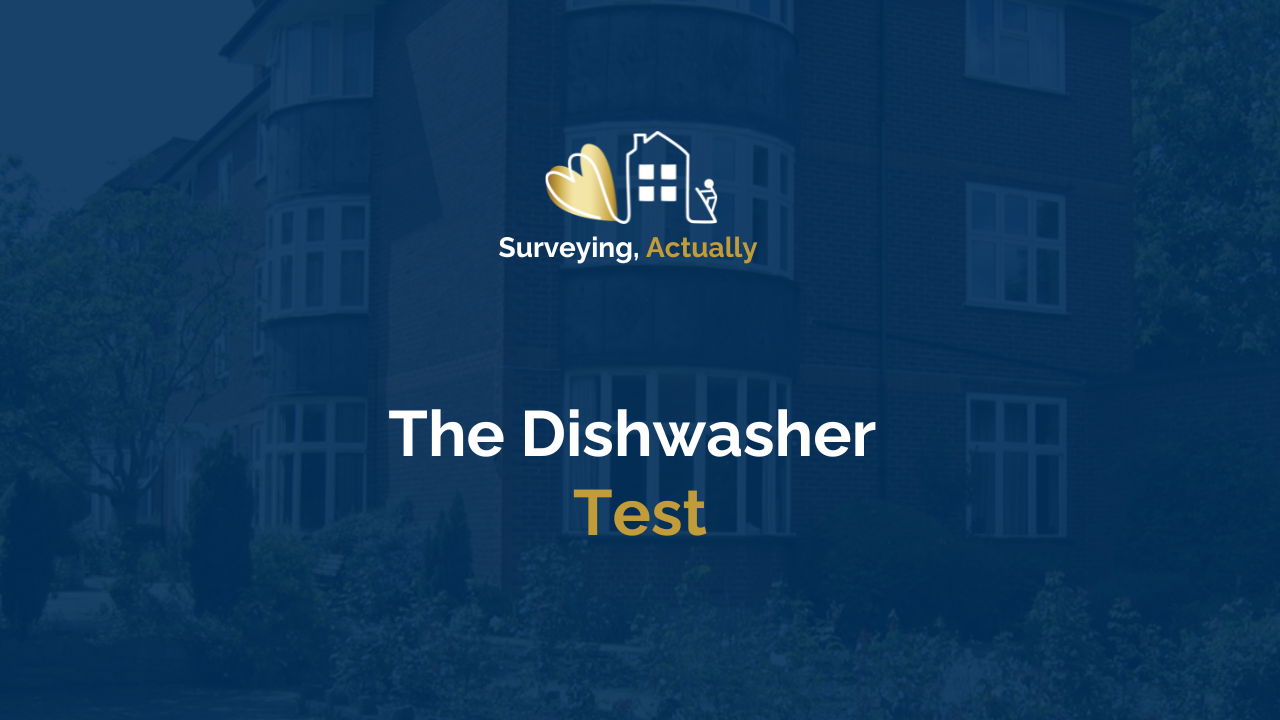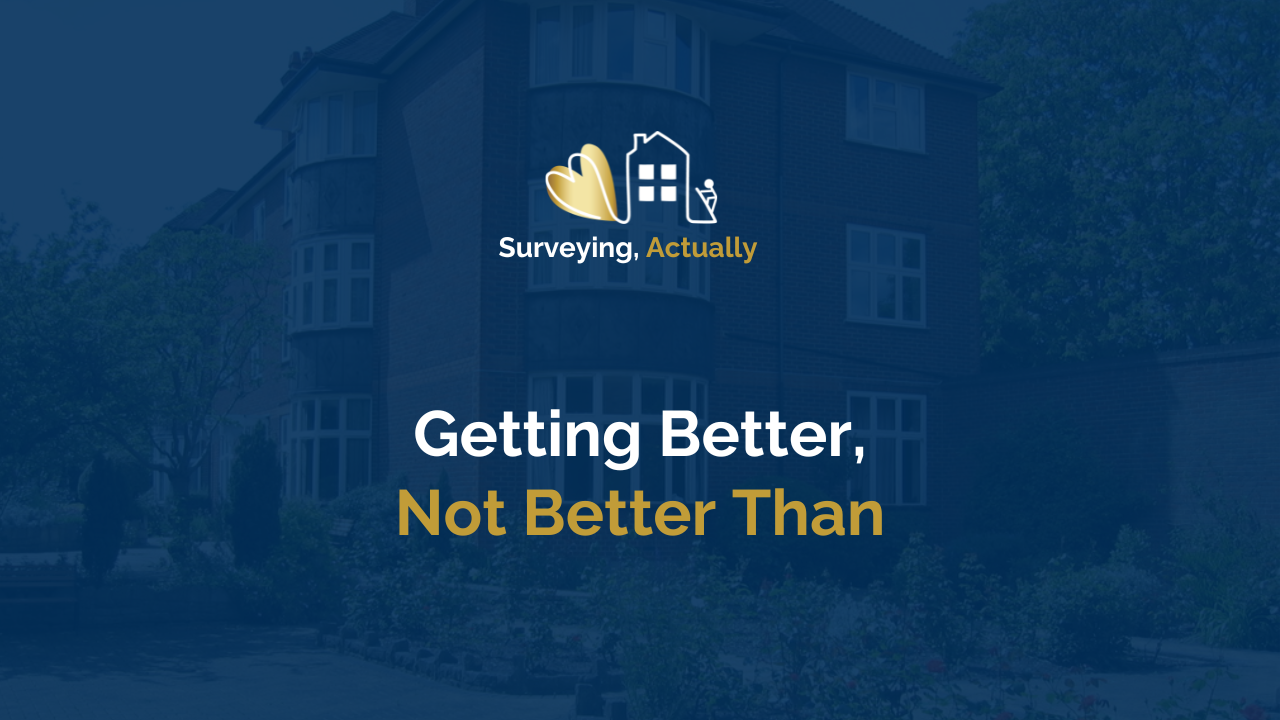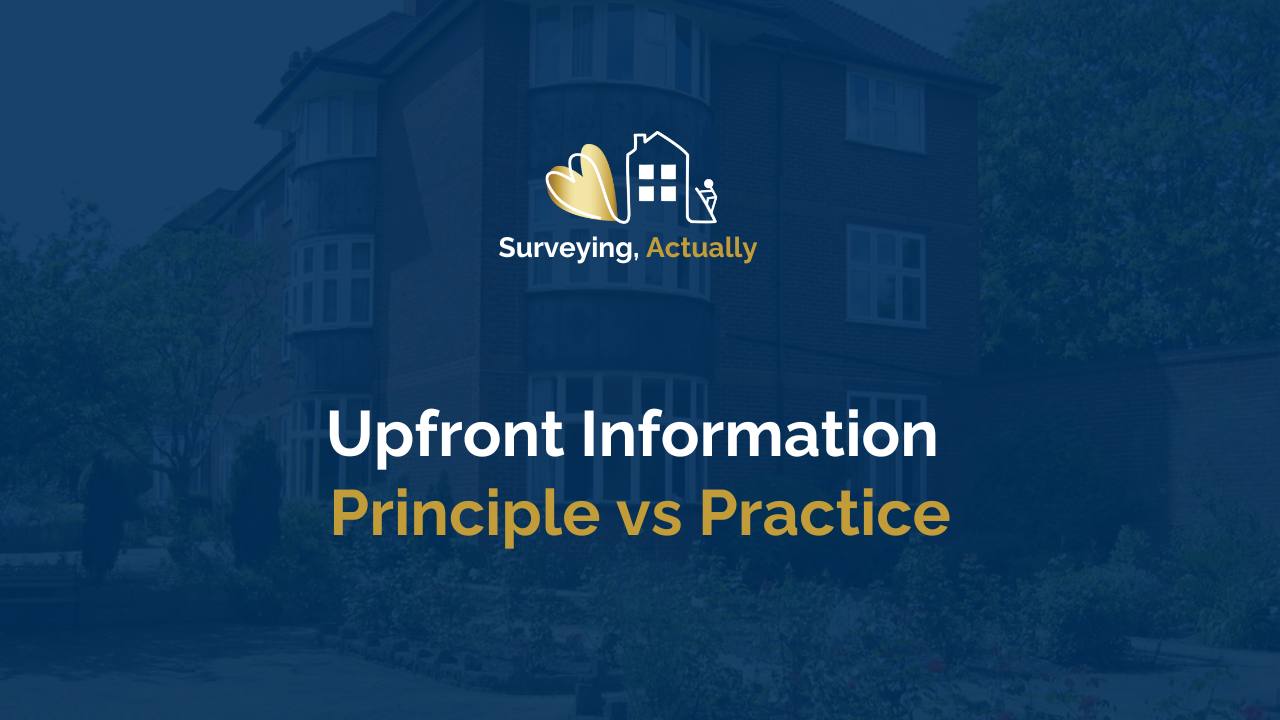Surveying With ADHD
Mar 01, 2024
Since I started to tentatively talk about being diagnosed with ADHD just a couple of years ago, it regularly comes up in conversations with surveyors in my network.
I am a surveyor and coach, and although I am now an ADHD-certified practitioner to support my clients better, I am not a doctor. You must get the professional advice and support you need. Still, I wanted to share some insights for those curious, nervous about asking, or wanting to open up a conversation with others.
I’ve included some resource recommendations that I found helpful in my journey, and hope they help you, too.
Where To Look for Information
My husband and I were sitting eating dinner, TV on in the background, and we heard a lady on BBC's The One Show talking about being diagnosed with ADHD in her forties. 'Interesting', my husband said. I will forever be grateful for that programme, as it allowed me to open up a conversation about how I was feeling about my diagnosis a few weeks earlier. My GP referred me, but I had started to read up and explore the subject of ADHD about a year earlier as my menopause symptoms settled down. Finding information you can trust is challenging but vital. News articles are beginning to become more balanced, but there is still a focus on whether ADHD is a 'thing' rather than what can be done to support people.
With so much helpful yet potentially misleading information, it is not only easy to go down a rabbit hole, but it is also incredibly overwhelming. I suggest finding one or two people you like to tune into and start there. I don't always agree with their views, but you can decide. As you start to follow others, your feed might increase the ADHD content recommendations. Resist, keep to a few until you begin to form a view. It can help with feeling overwhelmed.
On LinkedIn, I watch out for Professor Amanda Kirkby, Tony Lloyd, Samantha Hiew, Alex Partridge
On Instagram, I have enjoyed the following: Perry Mandanis, ADHD Vision, ADHD Chatter, ADHD Love
Other sources include ADDitude Magazine, which is highly rated as trusted, and they have an excellent free email you can subscribe to if you want to keep off social media. You can also search for podcasts where people often share their experiences; I started with this episode by Tracy Otsuka.
Finally, organisations like The ADD Association, the ADHD Foundation, ADHD UK and MIND are worth exploring.
Know Yourself Better
As you explore what ADHD is, you may start noticing things that resonate. We call them traits. Understanding how your neurodiversity shows up, in good or bad ways, can help you start conversations to get support because you will need to learn to advocate for yourself. The language used to describe ADHD traits can be confusing. Some will resonate, but some will feel alien as you look for answers.
On the one hand, it is true, you might be treated differently. Relationships might change. Most people want to help and understand, so the more you can advocate for yourself and tell people what you need, the better. At the start, it is hard - you might not know what you need but trust it will become more apparent and as you get support things will evolve and change again. So do what you need to until you can articulate what support you need.
Getting Support
I didn’t know it then, but Lionheart can help surveyors with a range of support. They can help you with conversations with your employer, APC and cognitive behavioural therapy specifically for ADHD.
My ADHD came about as my HRT following menopause at 44 started to settle down. Some things left me overwhelmed, yet I wasn’t burnt out, and I wasn’t depressed. I was able to get a private diagnosis after a 9-month wait with a psychiatrist. When diagnosed, ensure it is with a qualified doctor who can prescribe medication. You don't have to take it, but it can be less complex if you do.
And if you do have medication, be warned privately it can cost hundreds of pounds a month. Ask if your GP will enter a shared care arrangement where you see your ADHD doctor, and the GP dispenses the medication under the NHS. You can use the NHS Pre-Pay Prescription Service on a 12-month certificate. The cost of my medication went down from nearly £500 a month to £111.60 for the year. My private diagnosis was around £750.
You do not need a diagnosis to get support. Your employer has legal responsibilities; even if you work for yourself, you can apply for government funding for Access to Work. Lionheart can help you apply for this, and I recommend getting support. It is not a neurodiverse-friendly process at all.
Don’t Compare Your Neurodiversity
Everyone is different, and how something affects you might affect someone differently. You can’t fail at being neurodiverse and don’t worry if you don’t fall into a category or stereotype. On the one hand, they are not helpful, but when you feel lost, they can provide an anchor and sense of reasoning in a scary situation, especially if you are diagnosed late.
My experience will not be the same as yours, and there are stark differences between more boys being diagnosed as children and women being diagnosed as they hit menopause. Our brains may be the same, but our biology, hormones, environment, and how we look after ourselves can make a difference.
The good news is the more you get to know yourself better and allow yourself to be, the more you will see the things that have helped you excel and where the blockers might now be. My ten years of personal development before my diagnosis meant that I was in a much better place to manage my ADHD, and it was more apparent for me to understand what I needed.
Coping strategies
When I was diagnosed at 47, I didn’t recognise the person being described to me when I read the doctor's report. I wondered how I got here with a successful (ish) career and family life. I was also embarrassed and ashamed.
I got here in my career because I learned to cope and develop strategies to support me without realising it. Some of them were good, some of them were bad.
For example, the fear of being embarrassed in front of other people was so great I could not allow myself to fail or get anything wrong. And when I did fail or make mistakes, often at things others wouldn’t bat an eyelid at, the shame felt like a physical pain. I learned to be prepared and always to know my place and position. People said I could be relied upon to complete the job, which equated to success.
I was always on time because I never allowed myself to be, so I was often far too early for everything. The shame of being late, walking into a meeting room with others was more than crippling. Travelling anywhere was stressful in case things went wrong. My life became organised. Very organised. As I was good at organising, I could be relied upon, which made me successful.
Without even realising it, you will have ways of doing things that have helped you get to today and cope with what life throws at you.
On the flip side, I have always struggled to maintain friendships. Out of sight, out of mind. I often feel alone and isolated, and yet, too many people can feel stressful. I feel most comfortable in small groups of trusted circles, but they are few and far between in a traditionally male profession. It's partly why I prefer to run a mastermind rather than a membership for small businesses. My work works for me and my clients.
Avoid Burnout
The problem with adapting so much, all of the time, is that two things can easily bring everything crashing down.
Firstly, it is exhausting not to be yourself. ADHD’ers are more likely to burn out. You need to balance:
- Being who you are and deserve to be.
- In an environment and working rhythm that suits you.
- And your well-being and health must come first at all times.
You do not need to be a health geek, but you must know what you need to be ok and what is not good for you. Sleep and rest are often king.
Secondly, your coping strategies and boundaries will hold you up, but if they fail or change, you must find ways to recreate better ones. I was very organised with food shopping, deliveries, and meals when I worked in a corporate role. When that changed, I barely ever had any food in the house. It transpired I am good at making something out of nothing and should have been a contestant on Ready, Steady, Cook.
But that is an exhausting way to run a family kitchen, and I took it all on me. I'm not too fond of supermarkets, so I avoid them. I have had to adapt and change how I do things, notably recognising that I am not the only adult in the home, and my Husband now does a smaller regular weekly shop. He has always done his share; he just now helps with things that make a difference to me. He does a regular smaller shop of the basics. I organise the extra bits, which allows me to be more creative (the kids eating is another matter).
Do What You Love
Dopamine hits make a difference to ADHD’ers, so whatever you do at work and wherever you hang out, you have to enjoy it. Reward the tricky tasks you complete. Let go of people, places and work that you do not enjoy. You will be more productive and happier.
My business is called Love Surveying, and sometimes I have hated the surveying profession and how it behalves. Too often, I feel I need to stick my neck out and call something out on others' behalf. It doesn't make me popular, I'm sure, but the sense of injustice, an ADHD trait, pushes me on. Interaction with some organisations is exhausting, so I am moving away from direct involvement.
I’ve often not felt like a good enough surveyor because I do not fit the mould. And while gender diversity may have played a part in that, I have come to realise by embracing my ADHD that I am the surveyor I am, and I can do it my way. I may not practice or inspect buildings as I did at the start of my career, but by creating a business that works for me, I have been able to influence and contribute more than I ever could, and I am thankful.
I hope you have found this helpful. Please do drop me a note and let me know.
Enjoy this article? You might also like Navigating your Journey from MRICS to FRICS.
Find this content helpful? I'd love to hear your suggestions and recommendations. If you found this article helpful, please share it and show your support by leaving me a Google review, or you can Buy Me a Coffee. Being a small business just like you, it makes all the difference.





